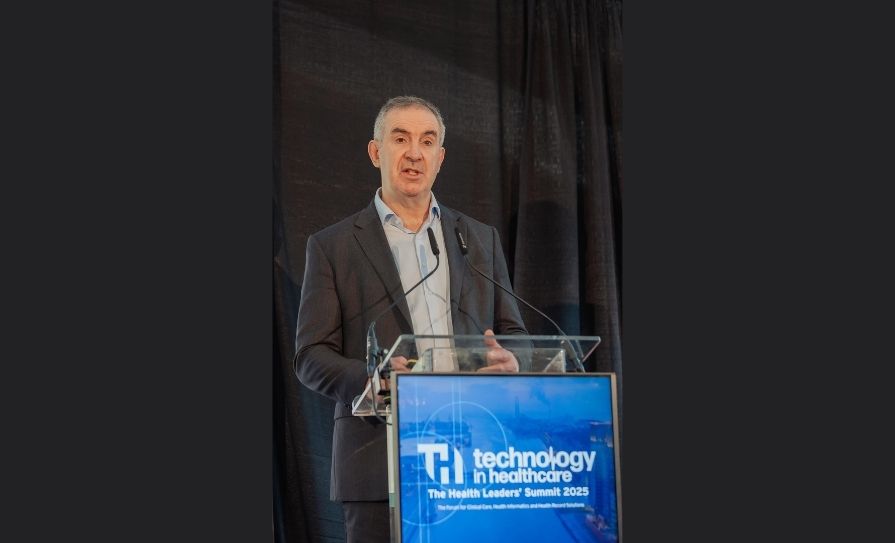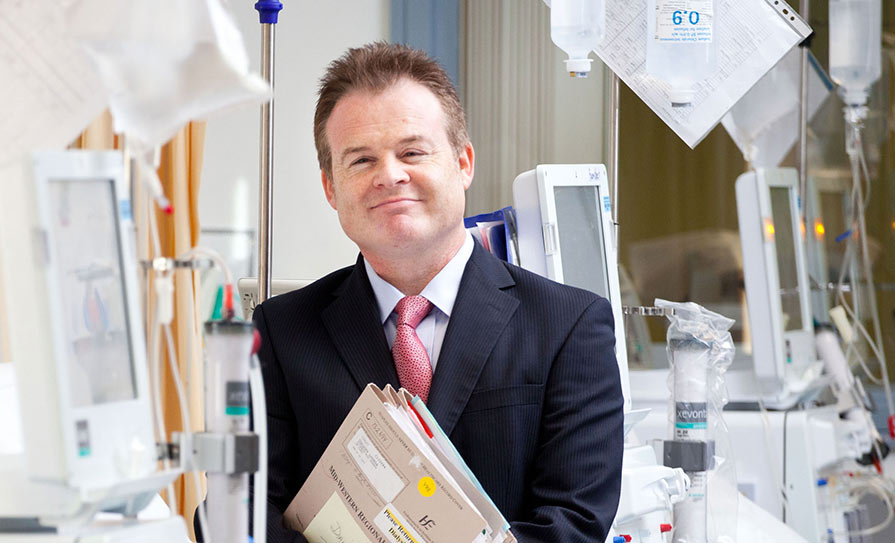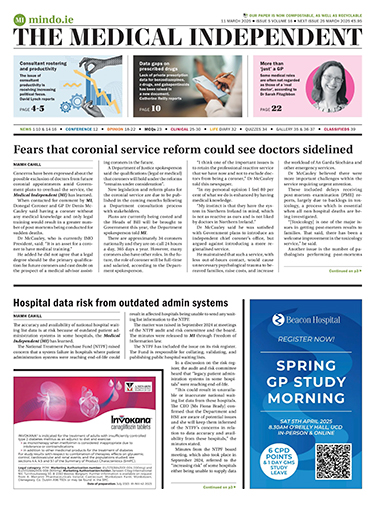The majority of consultants do not believe health management seeks their input into decision-making, the recent IHCA Annual Conference heard.
Issues of leadership in healthcare dominated the conference with the Association publishing the results of a recent survey of its membership.
The meeting’s keynote speaker, Prof Michael West (PhD), delivered a presentation titled ‘Leadership – a reset in Irish healthcare’.
Prof West is Professor of Work and Organisational Psychology at Lancaster University, UK, and visiting Professor at University College Dublin.
“The thing that struck me most of all from the IHCA survey was the
lack of involvement of consultants in decision-making,” Prof West told the Medical Independent.
“They are such a highly motivated and skilled group, we should be finding every possible way that we can to involve them in decision-making.
“That’s how we will generate the ideas and new and improved ways of doing things, that will help us transform our healthcare system. This feels elementary that we would do that. And the fact that we are failing to means that… we should be doing it in the future.”
Prof West emphasised that with the significant structural changes consultants are facing – such as those introduced by Sláintecare, the establishment of the six health regions, and the new consultant contract – now should be a time of robust staff engagement.
“Certainly, people feel stressed during times of organisational change,” said Prof West, “and that’s precisely the time that leaders need to increase their support for staff, listen to them more, understand the challenges that they’re facing and hear what they are concerned about, or afraid of.”
He added that he believes “leaders make the mistake of thinking they are going to drive the change through [rather] than recognising the number one task is supporting the staff and enabling the staff to help the change process”.
However, Prof West felt positive about the growing recognition for the need for compassionate leadership training in Ireland and elsewhere.
“There is absolutely brilliant progress being made,” he said. “In the RCSI, all of the postgraduate and undergraduate nursing and medical education programmes have an element of compassionate leadership. There’s the national clinical director programme on compassionate leadership. I also mentioned the compassionate action learning facilitation groups that the RCSI are running with colleagues in the HSE.”
The IHCA membership survey found that 72 per cent of hospital consultants believe in collaborative leadership, yet only 16 per cent feel management seeks their input in decision-making. Some 76 per cent are “very often or always in firefighting mode”, with just over 9 per cent having adequate time to forward plan. Just over half say their working environment does not reflect a culture of “mutual support, cohesion or trust”, while 63 per cent report a lack of access to necessary capacity and resources.
On the positive side, 72 per cent say they believe they are making a valuable contribution to patient care, research, and teaching.
Reacting to the survey results, IHCA President Prof Gabrielle Colleran said “the path forward requires a new mindset – a shift towards collaborative and compassionate leadership”.
“We all must play our part. We must foster a culture of connection, trust, and respect, because only through collective effort can we overcome the challenges ahead.”













Leave a Reply
You must be logged in to post a comment.